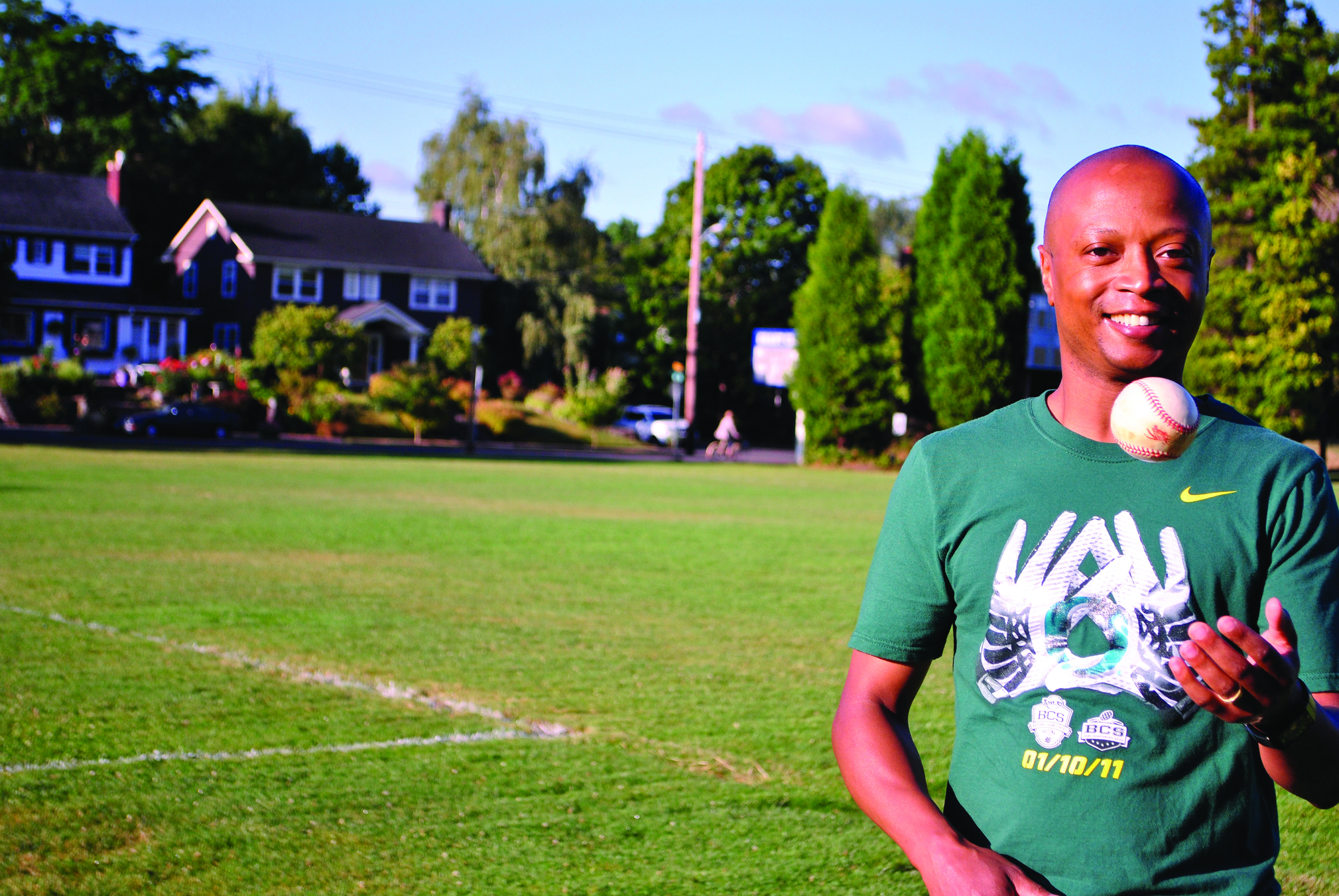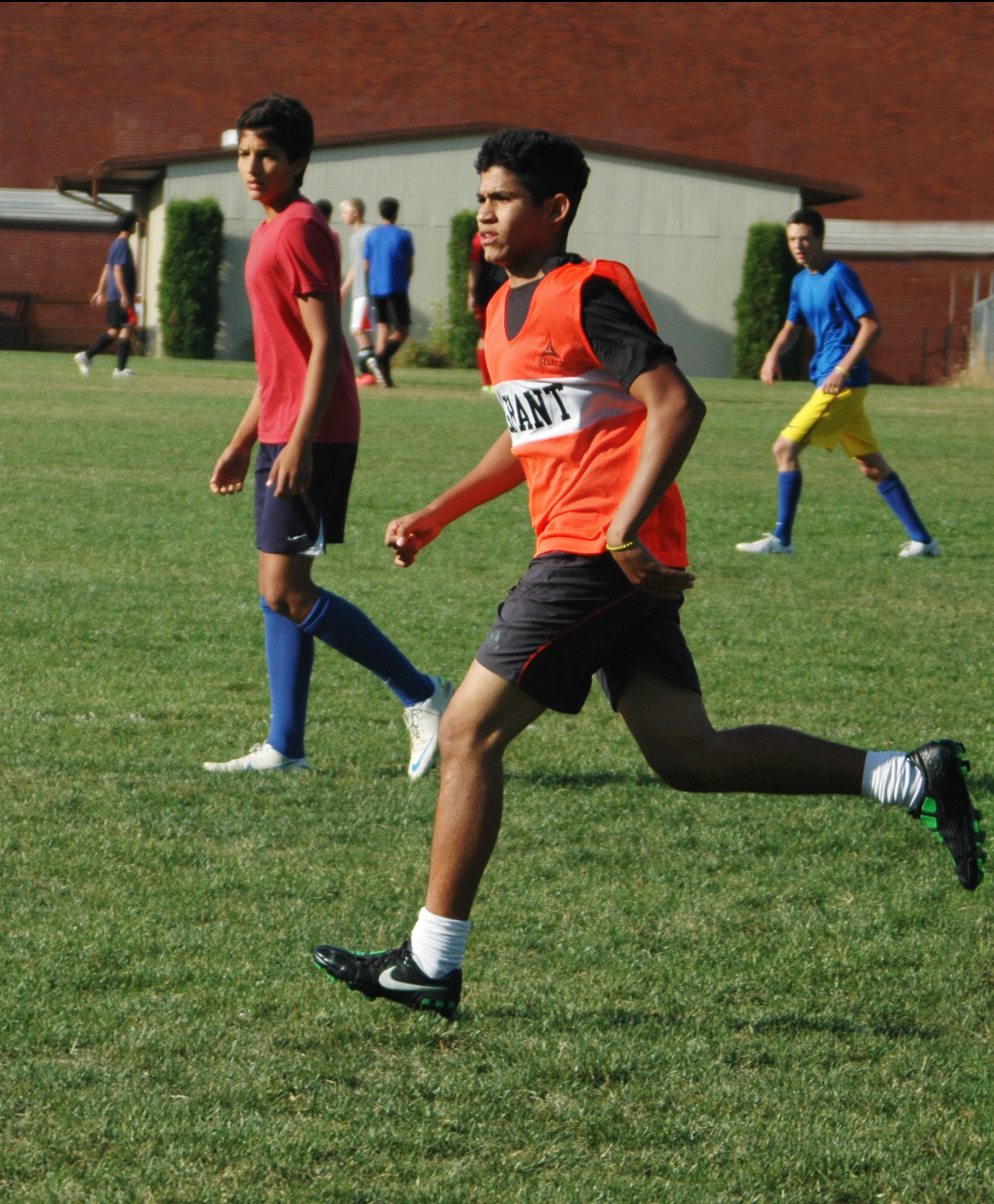
What sparked your interest to be a high school counselor?
I came from a long line of educators, but growing up educating was never something I saw myself doing. When I graduated high school, I was all about business. I saw educators as being underappreciated and I wanted to be in the best financial situation possible. I worked at US Bank for a year and a half but realized I wanted to be doing something that was making an impact, which I wasn’t doing in a corporate, white-collar office. I got a job at George Washington Carver High School in Atlanta, Georgia. It was dirt poor but surprisingly had a graduation rate of about 85%.
Why did you leave Georgia and return home?
Growing up here, we didn’t see African American males in positions of authority and success. What we saw was dope dealers. Those were the guys who had the money. But my friends and I knew we didn’t want to do that. Going to Atlanta, seeing black doctors, lawyers, CEO’s, and entrepreneurs shed light on what I should be doing. I returned to Portland because it was my obligation to give back, to let kids see you can maintain your identity, your culture, and still be successful. If you never see a black lawyer, what makes you think you can be one? I put aperspective on what my role was—I was probably destined for this. I think it’s inherently in me.
What was the main difference between working at Jefferson and at Grant?
Across the board—kids are kids regardless of their socioeconomic level. You’re just figuring out who you are. At Grant, I really appreciate how involved the parents are. Kids here have a clearer picture of what their future is going to look like. At Jefferson, kids had so many other issues coming into play—a lot of them couldn’t even see graduation as a real goal.
You said earlier that you wanted to be doing something that made an impact, what would that impact be?
I think about my dad who is now deceased, he was a counselor at PCC. He was an advocate for people who couldn’t advocate for themselves. Every time I meet a person from his generation, they have nothing but good things to say about him. It feels good to hear these kinds of stories. I’d like for people to say those same things to my kids. It’s this feeling that you helped someone at the end of the day that gives you intrinsic rewards. Having your peers say, “He was a valuable team member,” or having old kids from Jeff come up to me and say, “Something you said to me this many years ago really resonated with me,” those things make you feel better than collecting a paycheck.
Can you tell me about your children?
My 6-year-old is going into first grade, that’s my girl. And then my boy is five and he’s going into kindergarten. My wife and I read to them every night because reading is where success starts. Reading encompasses everything. It helped my daughter see that it’s OK to be smart. There’s this weird subculture that says it’s not OK to be smart. So my girl was very prepared when she got to kindergarten and my boy is following in her footsteps. I believe that getting good grades is your job—getting bad grades isn’t an option.
Where does that belief come from?
I only had one C in high school and I was proud of that. I didn’t come from an immediate family where parents had post-secondary education. For me to get through high school with one C was outstanding, as far as I was concerned. I want my kids to have that same type of drive.
Do you wish students would ask for help more often?
I saw my counselor all of four times in high school. I try to be more inviting. I want a complete open door policy so kids feel there’s no barrier, so they can see me if they need something. Ask for help if you need it. When kids come in failing classes, more often than not it’s because they’re not self-advocating. You need that your whole life. Your parents are not always going to be there. It’s important to be able to recognize your own strengths and weaknesses and not be afraid to vocalize them. Mistakes are OK as long as you learn from them. Don’t keep making the same mistakes over and over again.
What advice do you wish you could give to students?
Never sell yourself short. Money is what drives our society but it’s not what’s going to make you happy. If you have a dream, follow that dream but be realistic. Baseball would’ve been my dream job. We all have to have that glamorous dream but baseball wasn’t in my best interest to pursue. I feel blessed in this job, though. I get to touch people’s lives in a way that is much more valuable than hitting a ball. Money shouldn’t be the driving factor in everything. Put yourself in a position where you have doors open and then when the time comes you can choose which door to go through.


